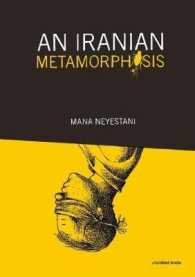Description
A dialogue between contemporary neuroscience and John Dewey’s seminal philosophical work Experience and Nature, exploring how the bodily roots of human meaning, selfhood, and values provide wisdom for living.
The intersection of cognitive science and pragmatist philosophy reveals the bodily basis of human meaning, thought, selfhood, and values. John Dewey's revolutionary account of pragmatist philosophy Experience and Nature (1925) explores humans as complex social animals, developing through ongoing engagement with their physical, interpersonal, and cultural environments. Drawing on recent research in biology and neuroscience that supports, extends, and, on occasion, reformulates some of Dewey's seminal insights, embodied cognition expert Mark L. Johnson and behavioral neuroscientist Jay Schulkin develop the most expansive intertwining of Dewey's philosophy with biology and neuroscience to date.
The result is a positive, life-affirming understanding of how our evolutionary and individual development shapes who we are, what we can know, where our deepest values come from, and how we can cultivate wisdom for a meaningful and intelligent life.
Table of Contents
Preface xi
1 Introduction: Philosophy, Naturally 1
2 It All Starts with Experience 11
3 The Naturalized Metaphysics of Emerging Mind 31
4 Meaning and Thought 49
5 Consciousness Wakes Up in Mind 75
6 Knowing as Transformative Action 99
7 The Making of a Self 121
8 The Aesthetics of Life and Mind 149
9 Philosophy Naturalized 181
10 Living with Naturalism 207
Appendix 235
References 237
Index 263








